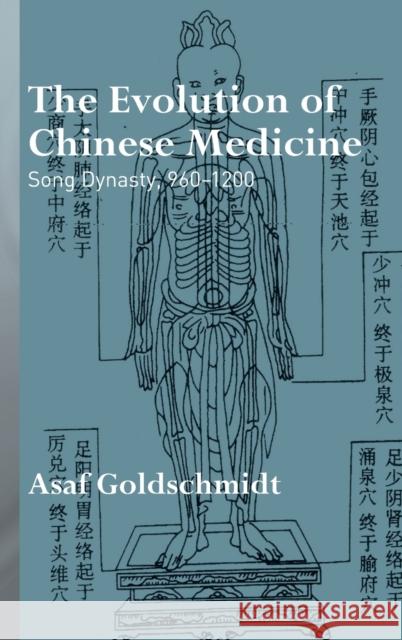The Evolution of Chinese Medicine: Song Dynasty, 960-1200 » książka
The Evolution of Chinese Medicine: Song Dynasty, 960-1200
ISBN-13: 9780415426558 / Angielski / Twarda / 2009 / 272 str.
The Evolution of Chinese Medicine: Song Dynasty, 960-1200
ISBN-13: 9780415426558 / Angielski / Twarda / 2009 / 272 str.
(netto: 698,25 VAT: 5%)
Najniższa cena z 30 dni: 705,23
ok. 22 dni roboczych.
Darmowa dostawa!
The history of Chinese medicine hinges on three major turning points: the formation of canonical theory in the Han dynasty; the transformation of medicine via the integration of earlier medical theories and practices in the Song dynasty; and the impact of Western medicine from the nineteenth century onwards. This book offers a comprehensive overview of the crucial second stage in the evolution of Chinese medicine by examining the changes in Chinese medicine during the pivotal era of the Song dynasty. Scholars often characterize the Song era as a time of change in every aspect of political, social, intellectual or economic life. More specifically it focuses on three narratives of change: the emperor's interest in medicine elevated the status of medicine in the eyes of the elite, leading to an increased involvement of intellectuals and the literary elite in medicine government officials systematically revised, printed, and promulgated earlier heterogeneous medical manuscripts belonging to various traditions the government established unique imperially sponsored medical institutions to handle public health and other aspects of medicine. As the first book to study the transformation medicine underwent during the Song period this volume will appeal to Sinologists and scholars of the history of medicine alike.
The history of Chinese medicine hinges on three major turning points: the formation of canonical theory in the Han dynasty; the transformation of medicine via the integration of earlier medical theories and practices in the Song dynasty; and the impact of Western medicine from the nineteenth century onwards. This book offers a comprehensive overview of the crucial second stage in the evolution of Chinese medicine by examining the changes in Chinese medicine during the pivotal era of the Song dynasty.
Scholars often characterize the Song era as a time of change in every aspect of political, social, intellectual or economic life. More specifically it focuses on three narratives of change:
- the emperor's interest in medicine elevated the status of medicine in the eyes of the elite, leading to an increased involvement of intellectuals and the literary elite in medicine
- government officials systematically revised, printed, and promulgated earlier heterogeneous medical manuscripts belonging to various traditions
- the government established unique imperially sponsored medical institutions to handle public health and other aspects of medicine.
As the first book to study the transformation medicine underwent during the Song period this volume will appeal to Sinologists and scholars of the history of medicine alike.











